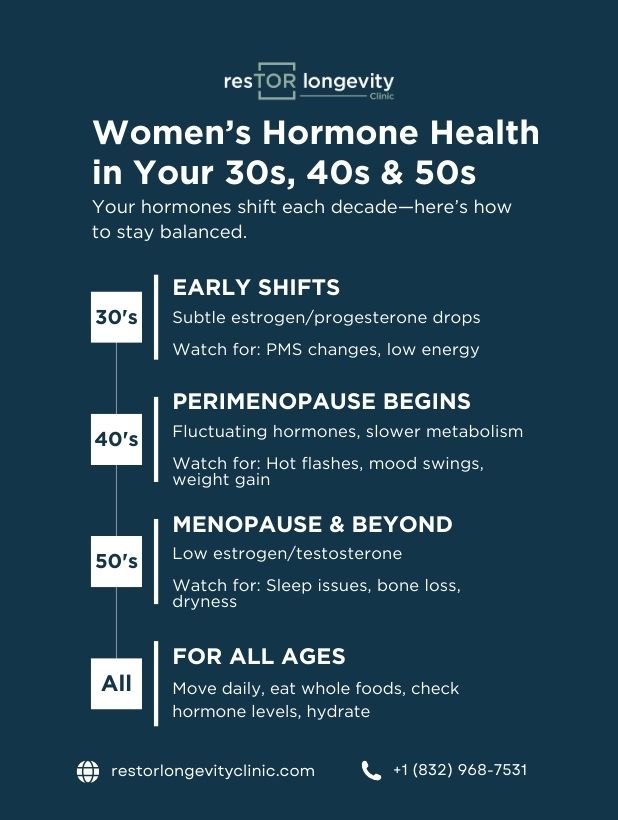Did you know that your metabolism doesn't just affect your weight? It plays a crucial role in your overall health and well-being. Understanding the early signs of a slowing metabolism can empower you to take actionable steps to improve your vitality. In this blog post, we will explore key indicators like fatigue, brain fog, low mood, and cold sensitivity that signal a sluggish metabolism. You will learn how to notice these signs in yourself, their implications for health, and how to remedy them with simple lifestyle changes. Let's dive into the subtleties of metabolic health and empower you to take charge of your wellness journey!
Understanding Metabolism
Metabolism is the sum of all chemical reactions in the body that maintain life. It involves converting food into energy, synthesizing necessary compounds, and regulating various bodily functions. A healthy metabolism adapts to your lifestyle, energy needs, and overall health. However, several factors can slow it down, making it essential to recognize the signs early.
What Causes a Slow Metabolism?
A variety of lifestyle choices, medical conditions, and age-related factors can lead to a slowdown in metabolism. Understanding these causes further highlights the importance of recognizing symptoms earlier. Here are some common contributors:
- Age: As we age, muscle mass naturally decreases, leading to a slower metabolism.
- Hormonal Changes: Hormones, particularly thyroid hormones, play a significant role in metabolic rate. Imbalances can decrease metabolism.
- Poor Diet: A diet low in nutrients can hinder metabolic health, leading to weight gain and sluggishness.
- Physical Inactivity: Regular exercise helps maintain muscle mass and boosts metabolism. Lack of physical activity can decrease metabolic function.
- Chronic Stress: High-stress levels can lead to hormonal imbalances and weight gain, further slowing metabolism.
Early Signs Your Metabolism May Be Slowing Down
Now that we understand the critical role of metabolism and its common causes let’s explore the specific signs you may notice:
1. Weight Gain
Weight gain is often the most visible sign of a slowing metabolism. It might occur even if you haven't increased your food intake. If you're gaining weight despite sticking to your usual eating habits and exercise routine, it could indicate a metabolic slowdown.
2. Persistent Fatigue
If you're consistently feeling fatigued despite getting enough rest, it could signal a sluggish metabolism. An inefficient metabolic system may lead you to feel more exhausted, even with sufficient sleep.
3. Mood Changes
Low mood or increased irritability can also signify slow metabolism. Hormonal fluctuations caused by a sluggish metabolism can impact neurotransmitters in the brain, leading to feelings of depression, anxiety, or mood swings.
4. Brain Fog
Struggling to concentrate or experiencing frequent brain fog can be harmful signals as well. When your metabolism is operating slowly, your body may not effectively use glucose as energy, leading to cognitive difficulties.
5. Cold Sensitivity
If you find yourself feeling cold all the time, it might indicate a slower metabolism. This symptom commonly stems from reduced energy production and can expose you to various climate sensitivity issues.
Why These Signs Matter
Recognizing these early signs is crucial for maintaining overall health and well-being. These symptoms not only affect your physical health but can also impact your emotional and mental states. Adverse effects on moods, energy levels, and cognitive function can create a vicious cycle, making it harder to take action toward improving your health.
How to Improve Metabolic Health
Once you recognize the signs of slowing metabolism, you can begin to take steps to address them. Here are some strategies you can implement to boost your metabolism:
- Balanced Nutrition: Prioritize a well-rounded diet rich in whole foods, including fruits, vegetables, healthy fats, and lean proteins. Avoid processed foods and excessive sugar when possible, as they can impact your metabolism negatively.
- Exercise Regularly: Aim for a combination of cardiovascular, strength training, and flexibility exercises each week. Increasing muscle mass through strength training can help raise your resting metabolic rate.
- Stay Hydrated: Drinking enough water supports metabolic processes. Aim for at least 8 glasses a day, and consider more during and after exercise.
- Manage Stress: Implement stress-reduction techniques such as meditation, yoga, or deep-breathing exercises to help balance hormones and improve metabolic function.
- Sleep Well: Make sleep a priority. Aim for 7-9 hours nightly to help regulate hormones and support overall health.
Additional Tips for Metabolic Wellness
- Consider Nutritional Supplements: Speak with a healthcare professional about potential benefits from supplements that may support metabolism.
- Monitor Stressors: Identify and reduce stressors in your life. Keeping your stress in check can significantly boost metabolic health.
- Regular Health Check-Ups: Regular screening for thyroid function and metabolic health can be valuable to catch issues early.



